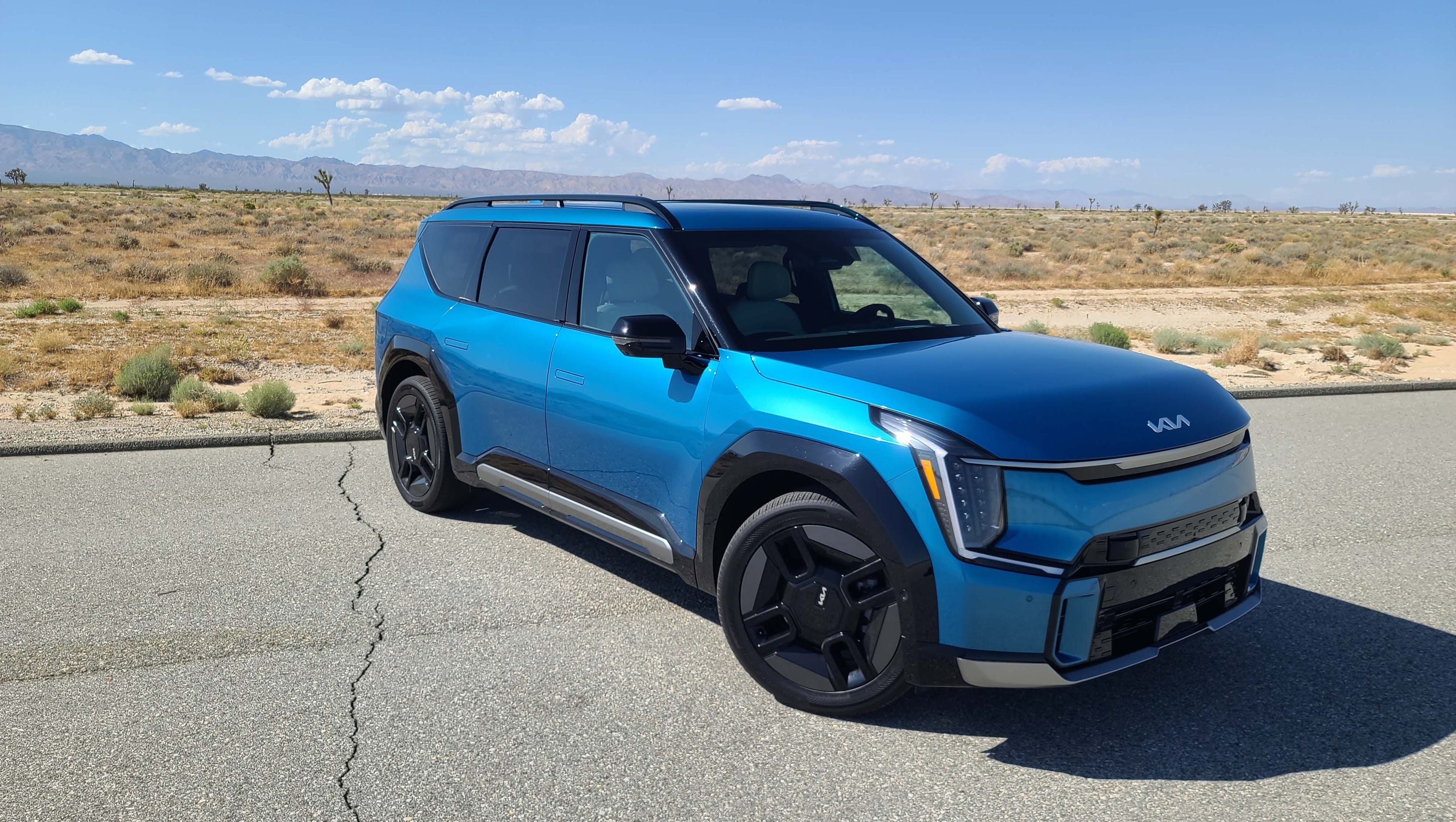Resistance Grows: Car Dealers Oppose Government EV Mandates

Table of Contents
Economic Concerns of Dealerships Facing Government EV Mandates
The rapid shift towards EVs presents significant economic challenges for car dealerships. The financial burden of adapting to this new landscape is substantial and raises serious questions about the viability of many dealerships, particularly smaller ones, under the current framework of government EV mandates.
High upfront investment costs for EV infrastructure
Dealerships face steep upfront costs to accommodate EVs. This includes:
- Charging station installation: Installing a sufficient number of fast chargers requires significant investment, both in equipment and electrical grid upgrades.
- Specialized EV maintenance equipment: EV repair and maintenance require specialized tools and training that represent a considerable capital expenditure.
- Staff training: Mechanics need specialized training to diagnose and repair EVs, leading to increased training costs for dealerships.
- Software and technology updates: Dealerships need to invest in new software and technology to manage EV inventory, charging systems, and customer data.
The lack of substantial government support for these infrastructure upgrades exacerbates the financial strain on dealerships, making compliance with government EV mandates a costly endeavor.
Impact on profitability and inventory management
The current market share of EVs is still relatively small. This means that:
- Profitability is affected: Dealerships may see a decrease in overall profitability as EV sales currently don't compensate for the loss of gasoline car sales.
- Inventory management is complex: Balancing the inventory of EVs and gasoline cars presents significant logistical challenges, potentially leading to stockpiling of unsold vehicles.
- Demand is uncertain: Predicting future EV demand is difficult, making accurate inventory planning a major challenge. This uncertainty increases the risk of losses due to overstocking or understocking.
These factors combined create a precarious financial situation for many dealerships forced to comply with government EV mandates.
Reduced margins on EV sales
Even with increased sales, dealerships may face reduced profit margins on EVs due to several factors:
- Increased competition: The growing number of EV manufacturers intensifies competition, potentially leading to price wars and reduced profit margins.
- Government subsidies: While government subsidies aim to support EV adoption, they may not fully offset the increased costs for dealers in acquiring and servicing EVs.
- Higher initial investment costs: The high initial costs of EV infrastructure and training eat into potential profits.
These challenges highlight the need for government policies that address the economic realities faced by dealerships in the transition to EVs.
Practical Challenges of Implementing Government EV Mandates
Beyond the economic concerns, the practical implementation of government EV mandates faces several significant hurdles. These challenges affect not only dealerships but the entire automotive ecosystem and consumer adoption rate.
Consumer demand and acceptance
Widespread EV adoption is hindered by various consumer concerns:
- Range anxiety: Fear of running out of battery charge before reaching a charging station remains a major concern.
- Charging infrastructure limitations: The uneven distribution and limited availability of public charging stations create accessibility issues.
- Higher purchase prices: EVs generally have a higher purchase price than comparable gasoline-powered vehicles, making them unaffordable for many consumers.
Addressing these consumer concerns through educational campaigns, improvements in charging infrastructure, and government incentives is crucial for achieving successful EV adoption.
The electric vehicle charging infrastructure gap
The lack of adequate charging infrastructure is a major impediment to widespread EV adoption:
- Insufficient public charging stations: The number of public charging stations currently available is insufficient to meet the projected demand for EVs.
- Uneven distribution: Charging stations are unevenly distributed across regions, creating accessibility problems in many areas.
- Reliability issues: Existing charging stations often suffer from reliability issues, further undermining consumer confidence.
Significant investment in a comprehensive and reliable nationwide charging network is paramount for successful EV adoption.
Lack of skilled labor for EV maintenance and repair
The transition to EVs requires a skilled workforce capable of maintaining and repairing these vehicles:
- Specialized training needed: EV maintenance and repair require specialized skills and knowledge that are not yet widespread among mechanics.
- Training programs are insufficient: Current training programs are not sufficient to meet the growing demand for skilled EV technicians.
- Workforce adaptation is slow: The automotive workforce needs to adapt quickly to meet the changing demands of the EV market.
Addressing this skills gap through targeted training programs and apprenticeships is crucial for ensuring the smooth operation of the EV market.
Dealership Advocacy and Alternative Solutions to Government EV Mandates
Facing these challenges, car dealerships are actively seeking alternative solutions and advocating for changes to government EV mandates.
Industry lobbying efforts
The automotive industry is actively lobbying governments to:
- Re-evaluate the pace of mandates: Dealerships advocate for a more gradual transition to EVs that considers the economic and logistical challenges.
- Introduce realistic timelines: Setting more realistic timelines for the phasing out of gasoline cars will allow for smoother transitions and greater adaptability.
- Offer alternative solutions: Industry associations are working to propose practical and sustainable solutions that address both environmental and economic concerns.
These efforts aim to influence policy decisions to create a more favorable environment for EV adoption.
Proposals for phased implementation and government support
Dealerships are proposing several measures to ease the transition:
- Phased implementation: A phased approach, starting with stricter regulations for new car sales and gradually incorporating used vehicles, is more manageable.
- Increased government funding: Requesting increased government financial assistance for infrastructure development, workforce training, and consumer incentives.
- Tax breaks and incentives: Seeking tax breaks and incentives to support both dealers and consumers in transitioning to EVs.
This targeted support can mitigate the economic risks associated with the transition.
Collaboration between government and industry
A collaborative approach is essential for a successful transition:
- Open communication: Open and constructive dialogue between government and industry stakeholders is crucial for finding effective solutions.
- Joint task forces: Establishing joint task forces to develop strategies that balance environmental goals with economic realities.
- Shared goals: Recognizing the shared goal of reducing emissions while supporting the economic viability of the automotive industry.
This collaborative approach is paramount to achieving a sustainable and successful transition to electric vehicles.
Conclusion
The growing opposition to government EV mandates from car dealerships highlights the complex challenges involved in rapidly transitioning to an electric vehicle-centric future. Economic concerns, logistical hurdles, and the need for robust consumer adoption and infrastructure support all require careful consideration. While the goal of reducing carbon emissions is vital, a collaborative approach that balances environmental concerns with the economic realities facing car dealerships is essential. A phased implementation with increased government support and collaboration between industry and policymakers is critical to ensuring a successful and sustainable shift towards electric vehicles and addressing the resistance to government EV mandates. Ignoring the legitimate concerns of the automotive industry could hinder the progress of EV adoption. Open dialogue and practical solutions are needed to navigate this transition effectively. Let's work together to create a future where both environmental sustainability and economic viability coexist.

Featured Posts
-
 Mets Rotation Battle A Pitchers Shift And The Fight For A Starting Spot
Apr 28, 2025
Mets Rotation Battle A Pitchers Shift And The Fight For A Starting Spot
Apr 28, 2025 -
 Walk Off Win For Pirates Yankees Lose In Extra Innings
Apr 28, 2025
Walk Off Win For Pirates Yankees Lose In Extra Innings
Apr 28, 2025 -
 Federal Court Hearing Scheduled For Deportation Of 2 Year Old Us Citizen
Apr 28, 2025
Federal Court Hearing Scheduled For Deportation Of 2 Year Old Us Citizen
Apr 28, 2025 -
 Andy Pettittes Gem A 2000 Yankees Diary Entry Featuring Joe Torre
Apr 28, 2025
Andy Pettittes Gem A 2000 Yankees Diary Entry Featuring Joe Torre
Apr 28, 2025 -
 Creating Voice Assistants Made Easy Open Ais 2024 Announcement
Apr 28, 2025
Creating Voice Assistants Made Easy Open Ais 2024 Announcement
Apr 28, 2025
